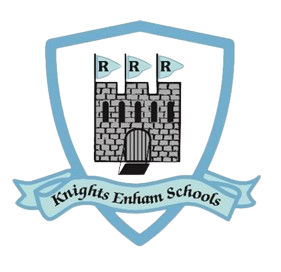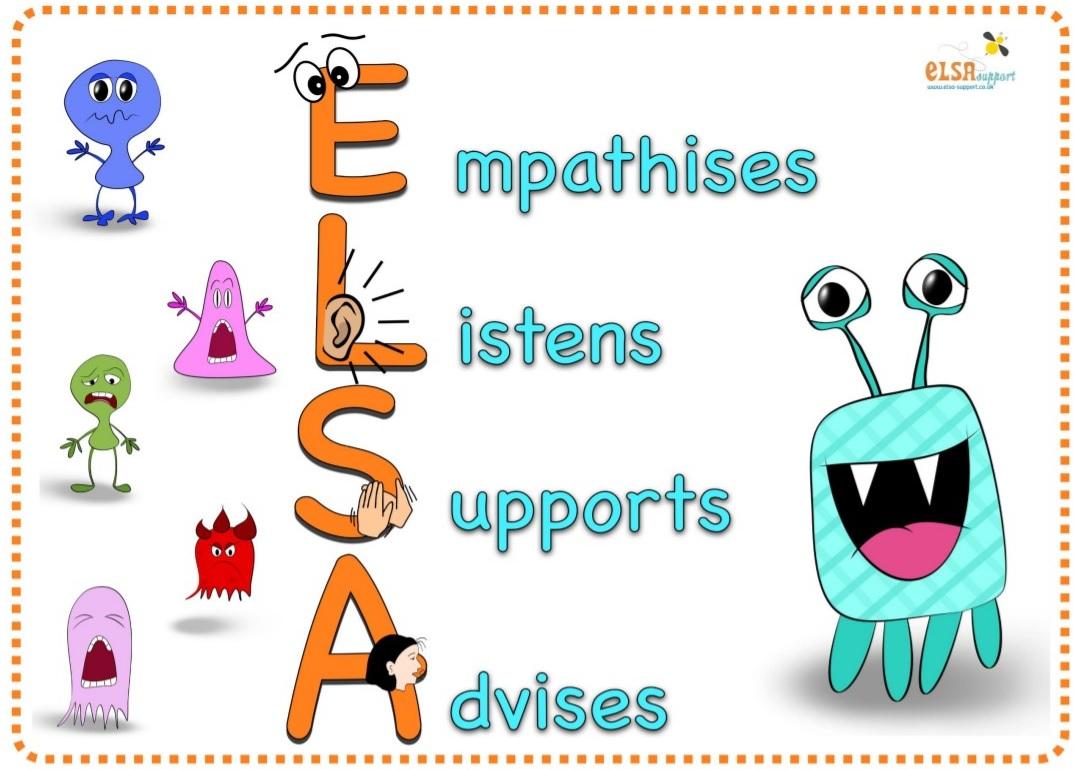ELSA
Emotional Literacy Support
What is ELSA?
In schools, ELSA stands for Emotional Literacy Support Assistant. ELSA support in schools is a project designed to help schools support the emotional needs of their pupils.
ELSA acknowledges that children and young people learn best when they feel happier and their emotional needs are being addressed.
The initiative was developed and supported by educational psychologists, who used knowledge of how children develop socially and emotionally, and applied this knowledge to the needs of pupils.
The role title of ELSA may only be taken by someone who:
- Has attended a full ELSA training course.
- Regularly attends supervision groups led by educational psychologists.
- Are developing bespoke programmes to support the emotional needs of children in their school.
ELSAs are trained to plan and deliver programmes of support to pupils in their school who may be experiencing temporary or long term additional emotional needs.
A lot of work that ELSAs do will be on an individual basis with one child, however, there are cases where group sessions may be appropriate such as when working on social skills and friendship skills.
ELSAs will receive support and supervision from educational psychologists, but will still report to a line manager within their school. Their school will also help with the identification and prioritisation of children who would benefit from the support of an ELSA.
What can ELSAs help with?
There are a lot of emotional skills that ELSA can help with, including:
- Social Skills
- Bereavement
- Social Situations
- Therapeutic Stories
- Anger Management
- Self-esteem
- Real-life problem-solving skills
- Friendship
How long should an ELSA Programme last?
The ELSA programme works best when there are aims for children to work towards and achieve, it does not, and should not, become a permanent or long term feature. When planning a child’s individual ELSA programme, it is a good idea to plan for approximately 6 weeks.
Further intervention towards new aims can be put in place at a later date if it becomes required.
Sessions will typically happen once a week and last approximately half an hour.
During a session, an ELSA should:
- Check how the child is and how they have been feeling for the past week.
- Review the content that was covered in the last session and see if any of the information needs to be revisited.
- To introduce new content through engaging games and activities.
- End the session in a way that helps the child to adjust to going back to class.
This programme of intervention can support immensely however, it is important to remember that it is not a quick fix in addressing the mental health needs of pupils.
If you require any further information, please contact Mrs Pope via the Junior office on 01264 394777

